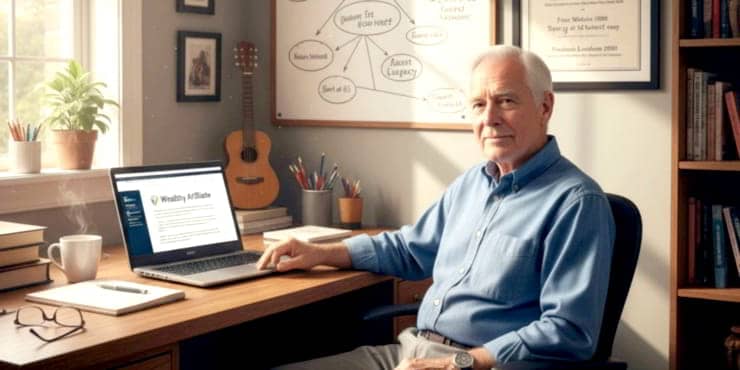From Idea to Reality: Solopreneur Problem‑Solving Guide

Estimated reading time: 8 Min
Turning ideas into impact? Use strategic planning, resilience, and creative thinking to bring your concepts to life—even when you’re solo.
As a solopreneur, you wear multiple hats, making it a unique and challenging venture as you handle all aspects from generating ideas to execution, marketing, and management.
Unlike traditional employment, solopreneurs face a distinct set of obstacles that require excellent problem-solving skills.
Common challenges faced by solopreneurs include time management, financial planning, self-motivation, and the lack of a support system.
Effective problem-solving is a vital skill for handling these hurdles and ensuring the success of your venture.
Exploring Core Challenges for Solopreneurs

Time Management and Prioritisation
One of the biggest challenges for solopreneurs is using their time well.
With a vast number of tasks to handle and limited resources, prioritisation is essential.
Identifying high-impact activities, using automation where possible, and delegating lower-priority tasks can help optimise your productivity.
Financial Planning and Cash Flow
Maintaining a steady cash flow is a common concern for solopreneurs.
Effective financial planning, budgeting, and forecasting are essential for ensuring smooth management and even the survival of your business.
Understanding your expenses, setting realistic pricing strategies, and exploring alternative revenue streams, along with comprehensive and accurate record-keeping, can help minimise financial risks.
Networking and Building a Support System
As a solopreneur, you may experience a sense of isolation without a traditional workplace or team.
Building a strong network with supportive relationships is important for personal and professional growth.
Attending industry events, joining online communities, and seeking mentorship can provide valuable insights and inspiration.
Dealing with Isolation and Maintaining Motivation
Working alone can take a toll on your mental and emotional well-being.
Maintaining your motivation and avoiding burnout are essential.
Setting achievable goals, celebrating milestones, and engaging in self-care activities can help you stay focused and energised.
Strategic Planning: A Roadmap to Solving Problems
Setting Clear, Achievable Goals
Defining clear goals is the foundation of effective problem-solving.
Break down your long-term vision into smaller, actionable steps, and prioritise tasks accordingly.
Setting “smarter” goals (specific, measurable, achievable, relevant, time-bound, environmentally aware, and resourced) can help you stay on track and measure progress.
Adopting a Proactive versus Reactive Approach
Solopreneurs should adopt a proactive approach rather than reacting to problems as they arise.
If you anticipate potential challenges and develop action and contingency plans, you can help minimise risks and disruptions to your business operations.
Regularly Reviewing and Adjusting Business Strategies
But nothing is set in stone.
As a solopreneur, flexibility is essential for handling both setbacks and opportunities.
Regularly reviewing your results (performance metrics), your business strategies, and making necessary adjustments can help you stay ahead and adapt to changing market conditions.
Leveraging Technology for Enhanced Problem-Solving
Tools for Time and Project Management
Using technology efficiently can be a game-changer for solopreneurs.
Project management tools like Trello, Asana, or Monday.com can help you organise tasks, set deadlines, and track progress efficiently.
I use Notion App for everything from capturing ideas to writing, including research, project management, workflow, etc.
Time-tracking apps like RescueTime or Toggl can help identify time-wasters and improve productivity.
Financial Tracking and Analytics Platforms
Maintaining accurate financial records is essential for informed decision-making.
Accounting software like QuickBooks, FreshBooks, or Xero can streamline budgeting, invoicing, expense tracking, and financial reporting, providing valuable insights into your business’s financial health.
Online Communities and Networking Platforms
Connecting with like-minded individuals can provide invaluable support and learning opportunities.
Joining online communities, such as forums, social media groups, or platforms like Reddit or LinkedIn, can help you network, exchange ideas, and seek advice from experienced solopreneurs.
My favourite and most highly active community that I’m aware of is attached to Wealthy Affiliate, which provides managed WordPress hosting, technical support, and comprehensive training for website building and business development.
Developing a Resilient Mindset
Embracing Challenges as Growth Opportunities

Solo entrepreneurship is a chosen route that is potentially filled with obstacles and setbacks.
An attitude of embracing these challenges as opportunities for growth and learning can help cultivate an even more resilient mindset.
Viewing apparent failures as temporary setbacks and reflecting on lessons learned can foster personal and professional development.
With resilience, there’s no such thing as failure, only feedback!
Cultivating Mental Toughness and Adaptability
Running a successful solo business requires mental toughness and the ability to adapt to changing circumstances.
Practicing mindfulness, setting realistic expectations, and maintaining a positive attitude can help you navigate through difficult times and make sound decisions.
Techniques for Stress Management and Self-Care
Solopreneurs often neglect self-care due to the overwhelming demands of their business.
However, prioritising self-care is essential for maintaining physical and mental well-being.
Techniques like meditation, exercise, and engaging in enjoyable hobbies can help manage stress and prevent burnout.
Creative Problem-Solving and Innovation
The Role of Creativity in Problem-Solving
Creativity is a valuable asset for solopreneurs, as it fosters innovative problem-solving and helps you stand out in a crowded market.
Developing creative thinking skills can lead to unique solutions and competitive advantages.
Encouraging Out-of-the-Box Thinking
Cultivating an environment that encourages outside-of-the-box, expansive thinking is crucial for solopreneurs.
Techniques like brainstorming, exploring adjacent industries, or engaging in creative exercises can help stimulate new ideas and fresh perspectives.
Case Studies of Innovative Solutions by Solopreneurs
Examining real-life examples of how solopreneurs have tackled challenges through creative and innovative approaches can inspire and guide your problem-solving efforts and provide valuable insights and potential strategies to implement in your own business.
Here are a couple of examples:
Case study 1: Airbnb: From Air Mattresses to a Global Empire
Background
In 2007, Brian Chesky and Joe Gebbia were struggling to pay their rent in San Francisco. To make some extra money, they decided to rent out air mattresses in their apartment and offer breakfast to guests. They called their service “Air Bed & Breakfast.”
Creative Problem-Solving
When they realised the potential of their idea, they expanded it into a website to help people rent out their spare rooms. The concept of sharing personal space for short-term rentals was novel and faced significant scepticism. Chesky and Gebbia’s creative thinking turned a simple need for rent money into a worldwide company by addressing the problem of expensive hotel stays and underused spaces.
Innovation
They didn’t stop at just rooms; Airbnb’s platform now includes experiences and adventures, allowing hosts to offer unique activities to guests. This diversified their offering and opened new revenue streams. Their use of professional photography to showcase rentals and secure payment systems also helped build trust in the community.
Result
Airbnb revolutionised the hospitality industry, creating a new category of accommodation. Millions of travellers worldwide now use their services. It has become a global platform valued at billions of dollars.
Case study 2: Spanx: Turning Frustration into Innovation
Background
In 1998, Sara Blakely was preparing for a party when she realised she didn’t have the right undergarment to wear under white trousers. She wanted something that would eliminate panty lines and smooth out her figure, but couldn’t find any suitable product.
Creative Problem-Solving
Blakely took a pair of scissors and cut the feet off her control-top pantyhose. This impromptu solution worked perfectly, inspiring her to develop a prototype for a new type of shapewear. Despite having no background in fashion or business, she pursued the idea with determination.
Innovation
Blakely’s persistence paid off when she finally secured a meeting with a hosiery mill in North Carolina. She patented her design, which was the first footless pantyhose. Her marketing strategy was equally innovative; she sent products to Oprah Winfrey, who featured Spanx on her show, giving it massive exposure.
Result
Spanx became a massive success, revolutionising the shapewear industry. Blakely’s company has since expanded into various apparel categories and remains privately owned, making her one of the youngest self-made female billionaires.
FAQs: From Idea To Reality
How do I prioritise tasks when everything seems equally important?
Prioritise tasks based on their impact, urgency, and alignment with your long-term goals. Use tools like the Eisenhower matrix or the RICE (Reach, Impact, Confidence, Effort) framework to help you make informed decisions.
How can I stay motivated when facing setbacks or a lack of progress?
Celebrate small wins, reflect on your journey and progress made, and seek support from your network or a mentor. Remember that setbacks are temporary, and persistence is key to overcoming challenges.
Why is out-of-the-box thinking important for solopreneurs?
Out-of-the-box thinking is crucial for solopreneurs because it leads to unique solutions that can differentiate their business from competitors and address problems in novel ways.
How can solopreneurs develop creative thinking skills?
Solopreneurs can develop creative thinking skills by engaging in regular brainstorming sessions, exploring industries outside their own for inspiration, and participating in creative exercises like mind mapping or lateral thinking puzzles.
When should I seek professional advice or support?
Consider seeking professional advice or support when facing complex legal, financial, or strategic decisions that could significantly impact your business. Experts can provide valuable guidance and help you navigate these challenges more effectively.
Summary
Solo entrepreneurship presents unique challenges that require exceptional problem-solving skills.
By effectively managing time and financial resources and building a support system, solopreneurs can navigate these obstacles and achieve success.
Strategic planning, leveraging technology, developing a resilient mindset, and embracing creative problem-solving are vital components of a solopreneur’s toolkit.
Regularly reviewing and adjusting business strategies, while remaining adaptable and open to learning, can help solopreneurs stay ahead of the curve.
Implement the discussed ideas and tools, explore the useful resources below and remember that resilience and a willingness to learn from challenges are key to thriving as a solopreneur.
😉
Richard
Useful Resources:
Books:
- “The Lean Startup” by Eric Ries
- “The 4-Hour Work Week” by Tim Ferriss
- “The Solopreneur Life” by Anita Hunte
Podcasts:
- “The Side Hustle Show” by Nick Loper
- “The Solopreneur Hour” by Michael O’Neal
- “Entrepreneurs on Fire” by John Lee Dumas
Websites and Online Communities:
- r/solopreneur (Reddit)
- Freelancer Union
- Solopreneur Society
- LinkedIn Groups related to your industry or niche
- Wealthy Affiliate



![Are Wealthy Affiliate Hubs Revolutionising Website & Content Development In [year]? A futuristic and sleek digital workspace designed for website management and content creation - Wealthy Affiliate Hubs](https://ml0yvzumdtic.i.optimole.com/cb:k6B_.1fa14/w:740/h:370/q:mauto/https://solobusinessmind.com/wp-content/uploads/2024/12/A-futuristic-and-sleek-digital-workspace-designed-for-website-management-and-content-creation-Wealthy-Affiliate-Hubs740x370-O.jpg)


